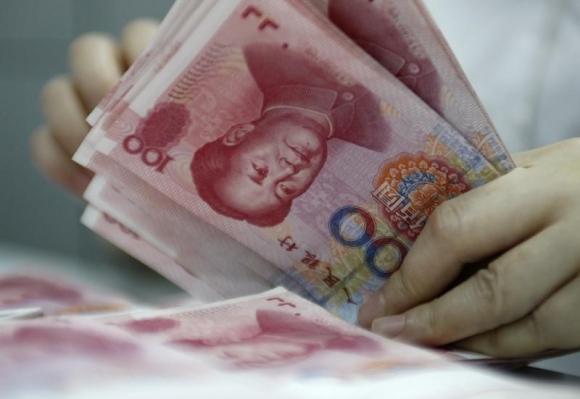Loose monetary policy should not worry China
Updated: 2015-08-29 07:20
By Mei Xinyu(China Daily)
|
||||||||
 |
|
An employee counts yuan banknotes at a bank in Huaibei, Anhui province June 22, 2010.[Photo/Agencies] |
Mounting inflation pressure is a prime concern when a country's central bank loosens its monetary policy to boost economic growth, which the People's Bank of China did on Tuesday by cutting the interest rate and deposit reserve ratio. To avoid triggering high inflation, therefore, a country should loosen its monetary policy only when inflation pressure is low.
The economic fundamentals of China have created a comparatively wide space for the central bank to loosen its monetary policy, so there is little risk of a sharp rise in inflation.
In fact, for a long time, inflation pressure has been low in China. As the largest trading country that relies heavily on foreign trade, China knows full well that the inflation pressure, to a large extent, comes from external inputs, especially the increase in prices of primary commodities such as food grains, raw materials, energy and manufactured goods.
Since the global primary commodity market has been bearish for quite some time, China does not face (and will not face in the near future) any inflation pressure. Instead, it faces deflation pressure. And although the rise in pork prices has been sharp, it cannot reverse the overall trend anytime soon.
The primary commodity market saw its last bull run in 2012. According to the International Monetary Fund, most staple commodities' prices have been falling since then, and oil prices are expected to drop 39.6 percent year-on-year this year. Experience shows a bearish market lasts 10 to 15 years and a bull run about 10 years. Since China became an importer of primary commodities in the 1990s, the long-term bear market of primary commodities in the world means the country faces deflation pressure.
- Global health entering new era: WHO chief
- Brazil's planning minister steps aside after recordings revelation
- Vietnam, US adopt joint statement on advancing comprehensive partnership
- European border closures 'inhumane': UN refugee agency
- Japan's foreign minister calls A-bombings extremely regrettable
- Fukushima impact unprecedented for oceans: US expert

 Stars of Lijiang River: Elderly brothers with white beards
Stars of Lijiang River: Elderly brothers with white beards
 Wealthy Chinese children paying money to learn British manners
Wealthy Chinese children paying money to learn British manners
 Military-style wedding: Fighter jets, grooms in dashing uniforms
Military-style wedding: Fighter jets, grooms in dashing uniforms
 Striking photos around the world: May 16 - May 22
Striking photos around the world: May 16 - May 22
 Robots help elderly in nursing home in east China
Robots help elderly in nursing home in east China
 Hanging in the air: Chongqing holds rescue drill
Hanging in the air: Chongqing holds rescue drill
 2.1-ton tofu finishes in two hours in central China
2.1-ton tofu finishes in two hours in central China
 Six things you may not know about Grain Buds
Six things you may not know about Grain Buds
Most Viewed
Editor's Picks

|

|

|

|

|

|
Today's Top News
Liang avoids jail in shooting death
China's finance minister addresses ratings downgrade
Duke alumni visit Chinese Embassy
Marriott unlikely to top Anbang offer for Starwood: Observers
Chinese biopharma debuts on Nasdaq
What ends Jeb Bush's White House hopes
Investigation for Nicolas's campaign
Will US-ASEAN meeting be good for region?
US Weekly

|

|







